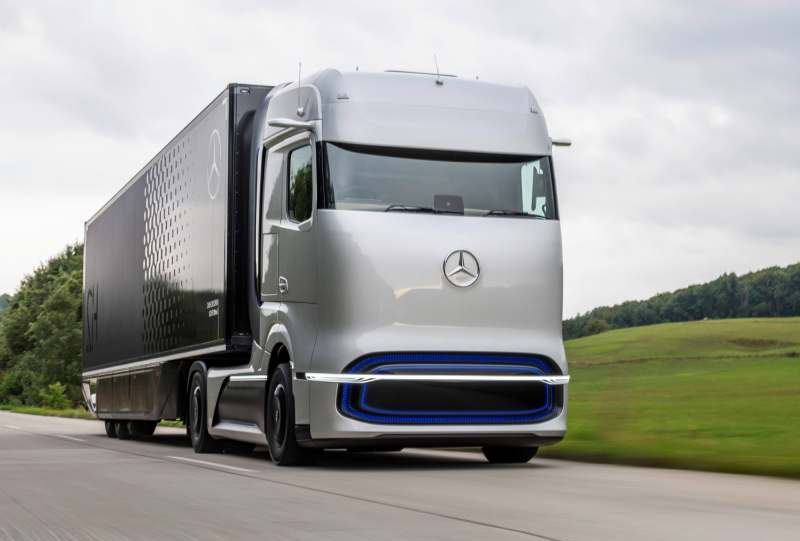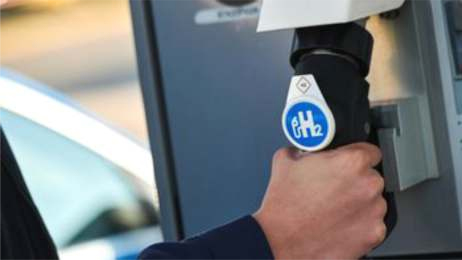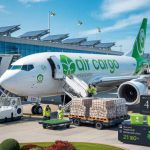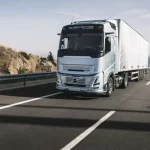H2Accelerate: New collaboration for zero emission hydrogen trucking at mass-market scale in Europe
Global leaders in trucking and fuel industries—Daimler Truck AG, IVECO, OMV, Shell and the Volvo Group—agree to work on unified vision of rolling out hydrogen trucks in Europe.
Amid a growing number of governments and businesses aligning on a common vision of a net-zero emissions energy system, global leaders in the trucking industry— Daimler Truck AG, IVECO, OMV, Shell and the Volvo Group—all participants to H2Accelerate committed to work together to create the conditions for the mass-market roll-out of hydrogen trucks in Europe.
The companies are convinced that hydrogen is an essential fuel for the complete decarbonization of the trucking sector.
Achieving a large-scale roll-out of hydrogen fuelled trucks is expected to create new industries: zero-carbon hydrogen production facilities, large-scale hydrogen distribution systems, a network of high-capacity refuelling stations for liquid and gaseous hydrogen, and the production of the hydrogen fuelled trucks.
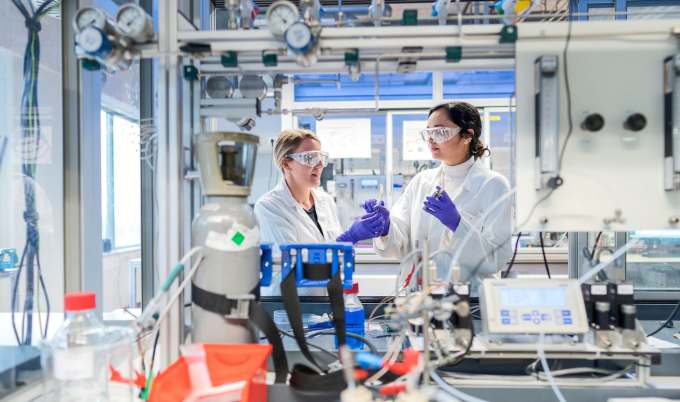 H2A participants believe that synchronized investments across the sector during the 2020s will create the conditions for the mass market roll-out of hydrogen fuelled heavy duty transportation which is required to meet the European ambition of net zero emissions by 2050.
H2A participants believe that synchronized investments across the sector during the 2020s will create the conditions for the mass market roll-out of hydrogen fuelled heavy duty transportation which is required to meet the European ambition of net zero emissions by 2050.
The decade long scale-up is expected to begin with groups of customers willing to make an early commitment to hydrogen-based trucking. These fleets are expected to operate in regional clusters and along European high capacity corridors with good refuelling station coverage. During the decade, these clusters can then be interconnected to build a truly pan-European network.
Throughout the scale up, support from the public sector will be required. Under H2Accelerate, the participants expect to work together to seek funding for early pre-commercial projects during the first phase of the roll-out.
In parallel, the participants will engage with policy-makers and regulators to encourage a policy environment which will help support the subsequent scale up into volume manufacturing for hydrogen trucks and a Europe-wide refuelling network for zero carbon hydrogen fuel.
‘Challenge of our generation’
Martin Lundstedt, President and CEO of the Volvo Group, described climate change as “challenge of our generation” that needs collaboration from all sectors to effectively stave off its impact on the planet.
The impact of climate change in our environment is becoming more visible everywhere with devastating consequences. Huge wildfires in Australia, Brazil and the United States. Longer periods of drought in some regions. Powerful storms and hurricanes in different parts of the world. Melting ice glaciers. Species getting extinct and so on.
“Climate change is the challenge of our generation and we are fully committed to the Paris Climate Agreement for decarbonizing road transport. In the future, the world will be powered by a combination of battery-electric and fuel-cell electric vehicles, along with other renewable fuels to some extent. The formation of the H2Accelerate collaboration is an important step in shaping a world we want to live in,” said Lundstedt.
Elisabeth Brinton, Executive Vice President for New Energies at Shell, noted: “The prize is clear. By boosting scale in a big way, hydrogen fuelled trucks will need to become available to customers at or below the cost of owning and operating a diesel truck today. This means truck customers will need to have access to a fully zero emissions vehicle with a similar refuelling time, range and cost range compared to the vehicles in use today. To achieve this ambition a clear regulatory framework is needed, including policies addressing the supply of hydrogen, hydrogen fuelled trucks, refuelling infrastructure and consumer incentives in a coordinated way.
Martin Daum, Chairman of the Board of Management of Daimler Truck AG and Member of the Board of Management of Daimler AG, commented: “The participant companies in H2Accelerate agree that hydrogen-powered trucks will be key for enabling CO2-neutral transportation in the future. This unprecedented collaboration is an important milestone for driving forward the right framework conditions for establishing a mass market for said hydrogen-based trucking. It is also a call to action for policymakers, further players involved and society as a whole.”
Angelika Zartl-Klik, OMV SVP HSSE & New Energy Solutions, hydrogen powered vehicles is the climate-friendly option in today’s world.
“H2Accelerate is playing a pioneering role and OMV is making an important contribution here. In order to achieve the climate targets, we will need any low-carbon technology. Hydrogen is an option for the climate-friendly mobility of the future,” she said.
Gerrit Marx, President Commercial & Specialty Vehicles at CNH Industrial, meanwhile, stated: “The widespread adoption of hydrogen fuel-cell technology in heavy-duty transport is a function of the necessary infrastructure. We also need very concrete projects to demonstrate with hauliers and other stakeholders in the industry that this solution is financially and operationally viable. The ground-breaking H2Accelerate collaboration will create the conditions for this to happen and accelerate the transition to zero-emission transport.”
What is H2Accelerate?
H2Accelerate is an alliance of different companies involved in the global transport industry agreeing to work together on a unified vision of fighting climate change by:
Seeking public support to fund early pre-commercial projects to activate the market on the path towards a mass market roll-out;
Communicating around the technical and commercial viability of hydrogen fuelled trucking at scale; and
Holding discussions with policy makers and regulators to encourage policies which can support a sustainable and speedy activation of the zero emissions long haul trucking market.
Team H2Accelerate
Daimler Truck AG, IVECO, OMV, Shell and the Volvo Group form part of H2Accelerate. With their alliance, hundreds of hydrogen trucks and more than 20 high-capacity refueling stations are envisioned to be built in the first phase. Second phase involves four-digit production figures, and more hydrogen filling stations across Europe will be constructed.
The Royal Dutch Shell Group of Companies are working to support the development of a global hydrogen market by creating an end-to-end business stretching from solar and wind to hydrogen production and finally supplying a growing range of customers in transport, heavy industry and other hard-to-decarbonise sectors.
Daimler Truck AG
In September 2020, Daimler Truck AG celebrated the world premiere of the fuel-cell concept truck Mercedes-Benz GenH2 Truck. It is conceptualized with liquid hydrogen for flexible and demanding long-distance haulage operations with ranges of up to 1,000 kilometers and more on a single tank of hydrogen with its series version.
Daimler Truck AG plans to begin customer trials of the GenH2 Truck in 2023; series production is to start in the second half of the decade. In November, the Volvo Group and Daimler Truck AG signed a binding agreement for a joint venture to develop, produce and commercialize fuel-cell systems.
IVECO
IVECO designs, manufactures and markets a wide range of light, medium and heavy commercial vehicles, off-road trucks, and vehicles for applications such as off-road missions. IVECO is investing in electric and hydrogen technology with driveline specialist FPT Industrial, also part of CNH Industrial, and through its partnership with Nikola Corporation.
OMV Aktiengesellschaft
OMV produces and markets oil and gas, innovative energy and high-end petrochemical solutions – in a responsible way. Sustainability is an integral part of OMV’s corporate strategy. OMV supports the transition to a lower-carbon economy and has set measurable targets for reducing carbon intensity and introducing new energy and petrochemical solutions.
Volvo Group and Hydrogen
Volvo Group’s ambition is that 100% of our products are fossil fuel free enabled from 2040. There will be a gradual shift into electric, both battery and fuel cell electric. For use cases with heavier loads or longer distances, hydrogen fuel cells will be an important technology.
The two technologies complement each other and both will be needed in order for us to build the sustainable transport system of tomorrow. In November, the Volvo Group and Daimler Truck AG signed a binding agreement for a joint venture to develop, produce and commercialize fuel-cell systems. Text & photos sourced from www.media.daimler.com







